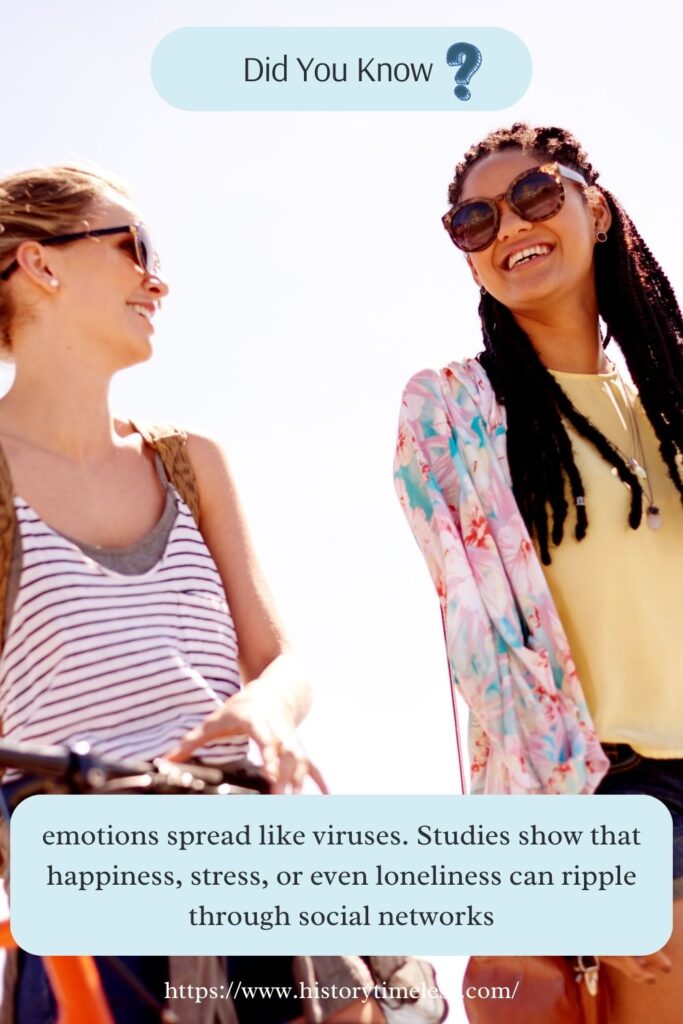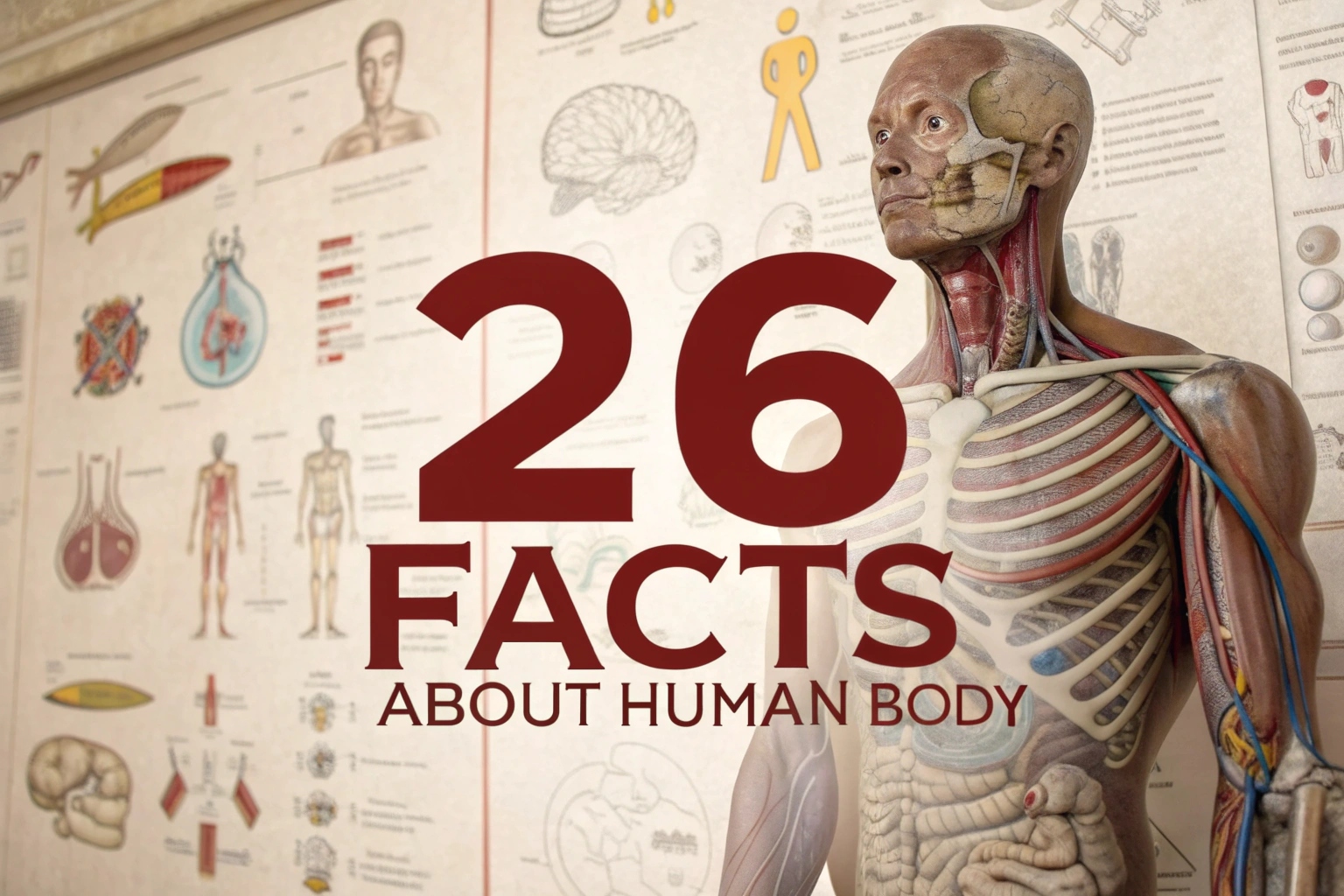The human mind is a labyrinth of quirks, biases, and hidden patterns that shape how we think, act, and connect. From the tricks our memory plays to the subconscious forces driving decisions, psychology reveals surprising truths about what makes us tick.
Whether it’s why we bond over shared flaws or how our brains distort reality to fit our beliefs, these facts offer a peek into the invisible mechanisms behind everyday behaviors.
Let’s dive into 25 intriguing psychological insights that might make you rethink your habits, relationships, and even your self-perception.
1. Your Brain Creates a “Frequency Illusion”
Ever noticed how buying a red car suddenly makes red cars appear everywhere? This is the Baader-Meinhof phenomenon or “frequency illusion.” Once your brain registers something new, it subconsciously highlights it, creating the illusion of increased frequency.
It’s a mix of selective attention and confirmation bias—your mind filters the world to match recent observations.
This explains why learning a new word or concept suddenly makes it pop up in unrelated contexts, tricking you into thinking the universe is conspiring to remind you of it.
2. The 20-Second Rule for Habit Formation
Want to build a new habit? Make it 20 seconds easier to start. Psychologist Shawn Achor found that reducing the effort required to begin a task increases the likelihood of follow-through.
For example, placing a guitar in the living room (instead of a closet) cuts the activation energy to practice. Conversely, making bad habits 20 seconds harder (like hiding junk food) can help break them.
Your brain prefers shortcuts, and tiny tweaks to your environment exploit this laziness, nudging you toward better choices without relying on willpower alone.
3. Mistakes Make You More Likeable
The Pratfall Effect reveals that people who admit minor flaws are perceived as more relatable and trustworthy. A classic study showed that competent individuals who spilled coffee during a conversation were rated higher in likability than flawless counterparts.
Errors humanize perfectionists, reducing intimidation and fostering connection. This explains why influencers sharing “blooper reels” or leaders admitting slip-ups often gain loyalty—vulnerability bridges the gap between authority and approachability.
4. The “Spotlight Effect” Exaggerates Self-Consciousness
You’re not being judged as harshly as you think. The spotlight effect describes our tendency to overestimate how much others notice our appearance or mistakes.
Research shows that people wearing embarrassing T-shirts assumed 50% of observers noticed, while only 25% actually did.
This cognitive bias stems from our inability to escape our own perspective. Next time you fret over a bad hair day or awkward comment, remember: most people are too preoccupied with their own “spotlight” to scrutinize yours.
5. Emotions Are Physically Contagious
Yawning isn’t the only thing that’s contagious—emotions spread like viruses. Studies show that happiness, stress, or even loneliness can ripple through social networks, affecting people three degrees removed from the source (a friend of a friend of a friend).

This “emotional contagion” happens through mimicry of facial expressions, tone, and body language, triggering mirrored feelings in others. It’s why toxic workplaces drain morale and why a friend’s laughter can lift your mood instantly.
6. Too Many Choices Paralyze Decision-Making
The paradox of choice proves that more options don’t mean better decisions. When faced with endless alternatives (like 50 jam varieties at a store), people often feel overwhelmed, leading to decision fatigue or regret.
Psychologist Barry Schwartz found that while some choice increases freedom, excessive options reduce satisfaction by amplifying fear of missing out (FOMO).
Simplifying choices—whether in menus, dating apps, or career paths—can ease anxiety and boost contentment.
7. Shopping Triggers a “Spiral of Consumption”
The Diderot Effect explains why buying a new item often sparks endless upgrades. Named after philosopher Denis Diderot, who felt pressured to replace all his possessions after acquiring a fancy robe, this phenomenon occurs when a new purchase disrupts your sense of identity, pushing you to “match” it with other upgrades.
That $100 sneaker? Suddenly your old jeans feel outdated. Marketers exploit this cycle, but awareness helps curb impulsive spending sprees.
8. Helping Someone Makes You Like Them More
Contrary to popular belief, the Benjamin Franklin Effect suggests doing a favor for someone increases your fondness for them. Franklin famously borrowed a book from a rival, who later became his ally.
Cognitive dissonance plays a role: if you help someone, your brain rationalizes, “I must like them to justify my effort.” This trick works in negotiations, friendships, and even parenting—asking for small favors can strengthen bonds.
9. Your Memory Relies on External Storage
The Google Effect describes how we forget information we know is easily searchable. Why memorize facts when the internet is a brain extension?
Studies show people recall where to find information (e.g., “I saved it in Notes”) instead of the details themselves.
While efficient, this reliance weakens long-term retention and critical thinking. Balancing digital tools with active learning keeps your mental muscle sharp.
10. Experiences Are Judged by Their Peak and End
The peak-end rule explains why memories hinge on emotional highs and final moments, not overall duration. A vacation is remembered for its best sunset and the last day’s mood, not the mediocre meals in between.
Nobel laureate Daniel Kahneman found this applies to pain, too: patients rated colonoscopies as less awful if the procedure ended gently, even if longer. Crafting strong finales—in dates, projects, or speeches—can redefine how experiences are remembered.
11. The Power of “Just One More”
The Zeigarnik Effect explains why unfinished tasks linger in your mind. Psychologist Bluma Zeigarnik found that incomplete goals create mental tension, keeping them at the forefront of your thoughts.
This is why cliffhangers in TV shows are so effective—your brain craves closure. Use this to your advantage by starting tasks, even if you don’t finish them immediately.
The nagging feeling will push you to return and complete them, making it a handy productivity hack.
12. Your Brain Rewrites Memories
Memories aren’t as reliable as you think. The misinformation effect shows that every time you recall an event, your brain subtly alters it, blending in new details or suggestions.
This is why eyewitness testimonies can be flawed. Over time, your memory becomes a patchwork of facts and fabrications, shaped by emotions and external influences. It’s a reminder that your past isn’t as fixed as it feels—it’s constantly being rewritten.
13. The “Halo Effect” Skews First Impressions
The Halo Effect occurs when one positive trait (like attractiveness or confidence) influences your perception of someone’s entire personality.
For example, a good-looking person is often assumed to be smarter or kinder, even without evidence. This bias extends to brands, products, and even job candidates.
Being aware of the Halo Effect helps you make more objective judgments and avoid overestimating people or things based on superficial qualities.
14. You’re Hardwired to Resist Change
The status quo bias explains why people prefer sticking to familiar routines, even when better options exist. Change feels risky, and your brain defaults to what’s safe and predictable.
This bias affects decisions like staying in a mediocre job or avoiding new technologies. Recognizing this tendency can help you push past comfort zones and embrace growth, even when it feels uncomfortable.
15. Laughter Bonds People Instantly
Laughter isn’t just a reaction to humor—it’s a social glue. Studies show that laughing together releases oxytocin, the “bonding hormone,” fostering trust and connection. Even forced laughter can trigger genuine feelings of camaraderie.

This is why laughter is a universal icebreaker and why comedians often feel like friends. Next time you want to connect with someone, share a laugh—it’s a shortcut to building rapport.
16. Your Brain Can’t Multitask Effectively
Contrary to popular belief, multitasking is a myth. Your brain toggles between tasks, not handling them simultaneously.
This switching costs time and mental energy, reducing efficiency by up to 40%. Research shows that chronic multitaskers perform worse on cognitive tests and struggle with focus. To boost productivity, focus on one task at a time—your brain will thank you.
17. Fear of Loss Drives Decisions
The loss aversion principle reveals that people fear losing something more than they desire gaining something of equal value. For example, losing $100 feels twice as painful as winning $100 feels good.
This bias explains why people cling to bad investments or stay in unsatisfying relationships. Understanding loss aversion can help you make more rational decisions and avoid being driven by fear.
18. Your Brain Loves Patterns
The apophenia phenomenon describes your brain’s tendency to find patterns in randomness. This is why you see faces in clouds or hear hidden messages in songs played backward.
While this skill helped ancestors detect threats, it can also lead to superstitions or conspiracy theories. Recognizing this bias helps you separate meaningful patterns from coincidences.
19. Smiling Can Trick Your Brain
The facial feedback hypothesis suggests that your facial expressions influence your emotions, not just the other way around. Forcing a smile, even when you’re unhappy, can trigger the release of dopamine and serotonin, lifting your mood.
This is why “fake it till you make it” works—your brain can’t always tell the difference between a genuine and a forced smile.
20. You Overestimate Future Happiness
The impact bias explains why people overestimate how much future events will affect their happiness. Whether it’s a promotion, breakup, or vacation, the emotional impact is often shorter and less intense than predicted.
This bias stems from your brain’s inability to account for adaptation—you quickly return to a baseline level of happiness. Knowing this can help you set more realistic expectations and avoid overhyping life events.
21. Your Brain Rewards Procrastination
Procrastination isn’t just laziness—it’s a brain hack. When you delay a task, your brain gets a quick hit of dopamine, the “feel-good” chemical, because it perceives the delay as a reward.
However, this short-term pleasure often leads to long-term stress. Understanding this cycle can help you break free by rewarding yourself for starting tasks early, not avoiding them.
For example, setting small, achievable goals can trick your brain into feeling accomplished, making it easier to tackle bigger tasks without falling into the procrastination trap.
22. You’re Biased Toward Confirming Your Beliefs
The confirmation bias is your brain’s tendency to seek, interpret, and remember information that aligns with your existing beliefs. For example, if you think a coworker is lazy, you’ll notice every mistake they make while ignoring their achievements.
This bias keeps you in a mental echo chamber, reinforcing stereotypes and limiting growth. Actively seeking opposing viewpoints can help you think more critically and objectively.
Try engaging in debates or reading diverse perspectives to challenge your assumptions and broaden your understanding of the world.
23. Your Brain Prefers Stories Over Facts
The narrative bias explains why stories resonate more than raw data. Your brain is wired to process information through storytelling, making complex ideas easier to understand and remember.
This is why anecdotes often trump statistics in debates. Whether you’re pitching an idea or teaching a lesson, framing it as a story can make it more compelling and memorable.
For instance, instead of listing dry facts, share a personal experience or a relatable scenario to captivate your audience and drive your point home.
24. You’re More Creative When Tired
Contrary to popular belief, fatigue can boost creativity. Research shows that people are better at solving insight-based problems when they’re tired because their brains are less focused on filtering out “irrelevant” ideas.
This is why you might have your best ideas in the shower or just before bed. Embrace your tired moments—they might spark your next big breakthrough.
If you’re stuck on a creative project, try working on it when you’re slightly fatigued, as your brain may make unexpected connections you’d otherwise overlook.
25. Your Brain Distorts Time Under Stress
The time perception bias reveals that stress warps your sense of time. When you’re anxious, time feels like it’s dragging, while happy moments seem to fly by.
This happens because stress activates your amygdala, which processes emotions and alters your internal clock. Understanding this can help you stay calm during stressful situations, knowing that the discomfort is temporary.
Next time you’re in a high-pressure scenario, remind yourself that the feeling of time slowing down is just your brain’s reaction, not reality.
Check out more mind-blowing facts:
20+ Insane Facts About Animals That Defy Belief!
25 Random Animal Facts That Sound Fake but Aren’t!
30 Brown Eye Facts That Will Blow Your Mind!
25+ Exciting Facts About People Born in November





